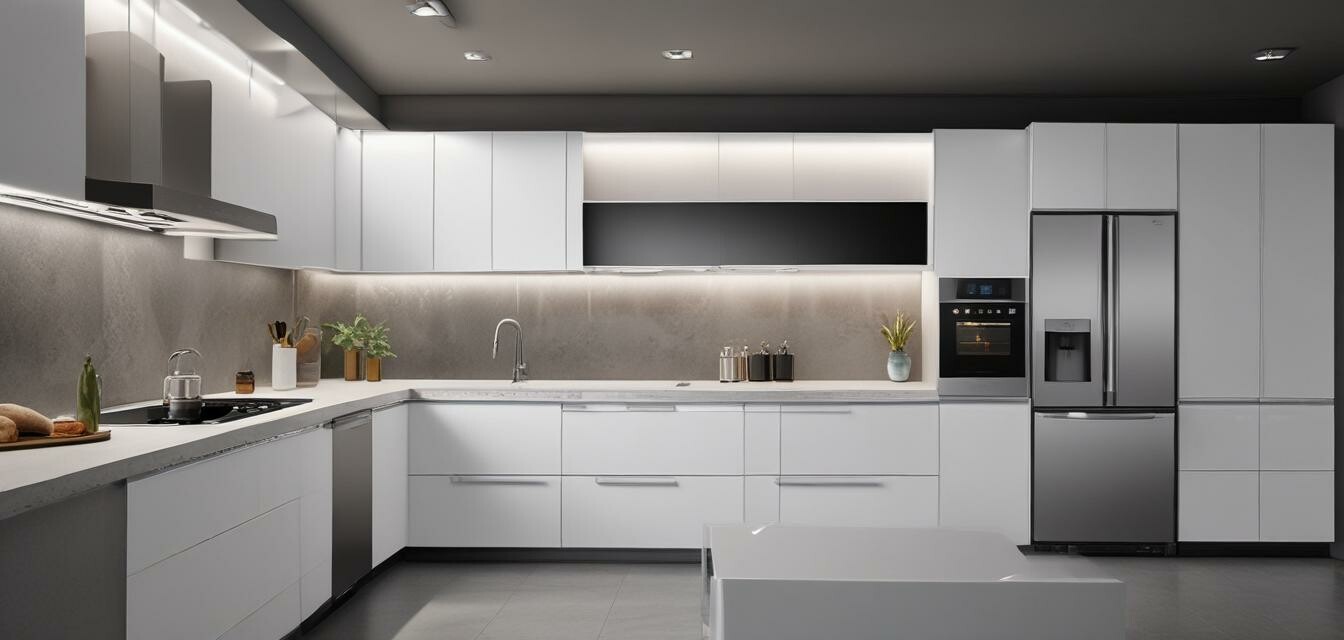
Smart Kitchen Innovations to Watch in 2025
Key Takeaways
- Smart kitchens are rapidly evolving with technologies that enhance convenience and efficiency.
- Key innovations to explore include smart ovens, energy-efficient appliances, and integration with smart home systems.
- Emerging trends focus on sustainability, connectivity, and enhanced user interaction in kitchen appliances.
- Staying updated with these trends can help you make informed purchasing decisions.
As we move closer to 2025, the kitchen industry is primed for a technological revolution. From smart ovens to touchless faucets, the innovations being developed are designed to make our lives easier and cooking more enjoyable. This article will explore some of the most exciting technologies set to change the way we cook and interact within our kitchens.
Emerging technologies shaping the future
1. Smart ovens
Smart ovens are taking cooking to a new level with features like remote monitoring, recipe suggestions, and voice-activated controls. These appliances are not just about convenience; they also help in achieving consistent cooking results.
2. Touchless faucets
Touchless faucets are becoming a staple in modern kitchens, allowing users to control water flow with a simple motion. This innovation enhances hygiene and reduces water wastage, making it a win-win for families.
3. Energy-efficient appliances
As sustainability becomes a major concern, energy-efficient appliances are in high demand. These appliances not only save money on utility bills but also help reduce the carbon footprint.
4. Integration with smart home systems
The integration of kitchen appliances with smart home systems is allowing for unprecedented control and flexibility. Users can now schedule cooking times, adjust temperatures, and even receive notifications to their smartphones.
Trends that will dominate kitchens
| Trend | Description |
|---|---|
| Personalization | Appliances that adapt to individual cooking styles and preferences. |
| Enhanced connectivity | Devices that communicate with each other for smarter operation. |
| AI integration | Use of artificial intelligence to learn and suggest recipes based on dietary restrictions and preferences. |
| Eco-friendly designs | Products made from sustainable materials and designed to operate efficiently. |
Benefits of smart kitchen technologies
Embracing smart kitchen innovations offers numerous advantages:
- Improved efficiency in meal preparation and cooking.
- Enhanced user experience through easy-to-use interfaces.
- Energy savings through smarter appliance use.
- Increased safety with features like automatic shut-off and remote monitoring.
Considerations for future buyers
As new technology continues to emerge, it’s important for buyers to consider:
- Compatibility with existing smart home systems.
- Long-term savings on energy bills.
- Availability of customer support and warranty options.
- Ease of use and maintenance requirements.
Pros
- Convenience and time-saving.
- Enhanced cooking capabilities.
- Sustainable options promote eco-friendliness.
Cons
- Initial investment costs can be high.
- Learning curve for new technology.
- Potential for technology to become outdated quickly.
Conclusion
The innovations in smart kitchen technologies are not just about making cooking more convenient; they are about redefining how we interact with our kitchen environments. By staying informed about these advancements, you can enhance your cooking experience and adapt to the future. For more insights on high-tech kitchen appliances, explore our news and trends section.
In summary, keeping up with the latest kitchen technologies can help inform your purchasing decisions. Whether you're interested in smart ovens, touchless faucets, or energy-efficient appliances, the innovations coming in 2025 promise to revolutionize how we cook.